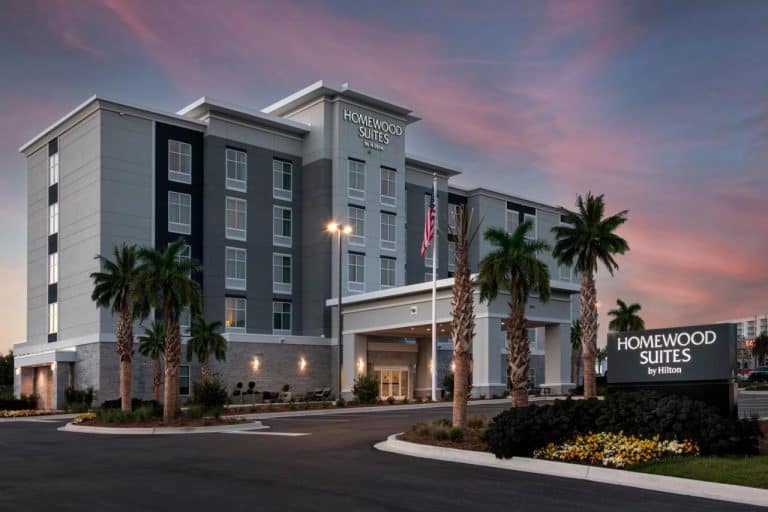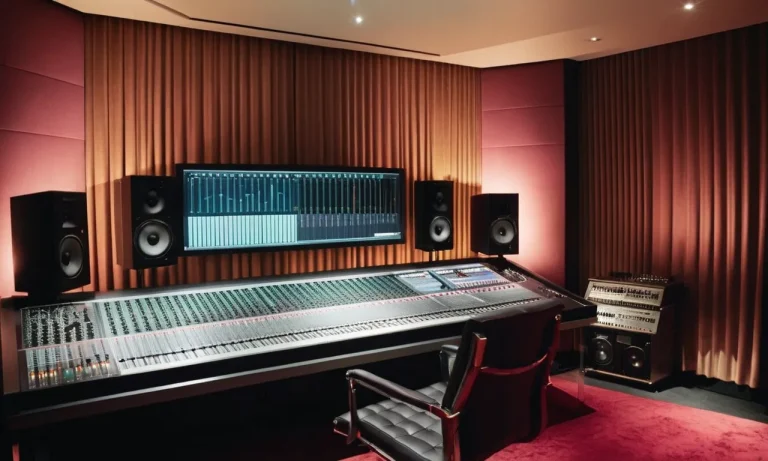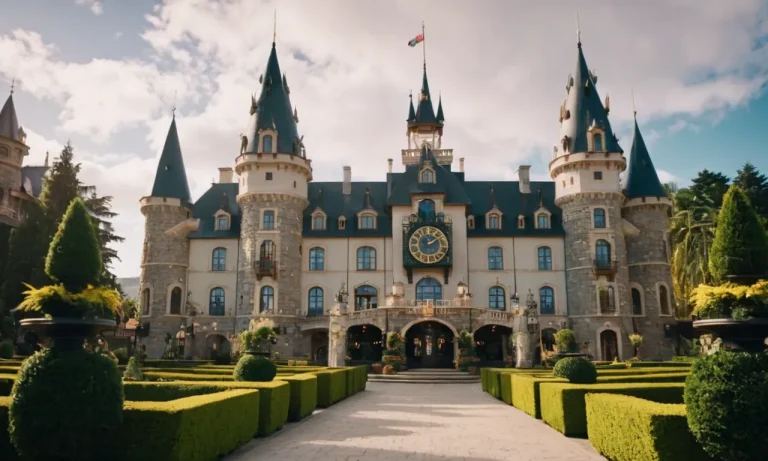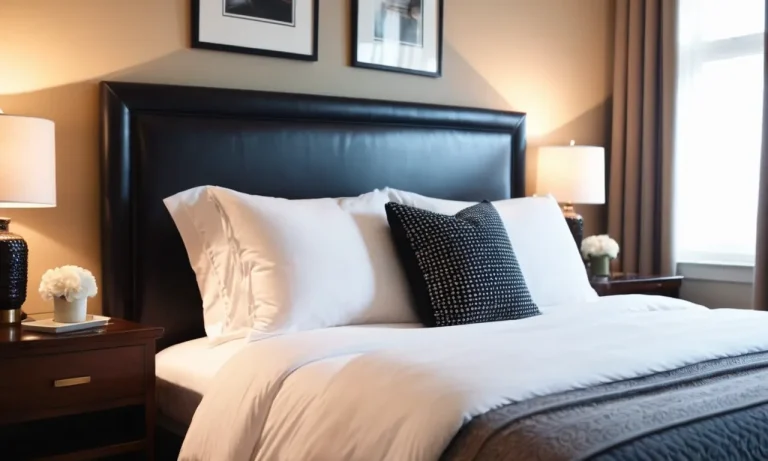How Long Do People Stay In Hotels On Average?
Traveling is an integral part of modern life, whether for business or leisure. One of the most crucial aspects of any trip is finding suitable accommodation, and hotels remain a popular choice for many travelers. However, the length of stay can vary significantly depending on various factors.
This article delves into the intriguing question: how long do people stay in hotels on average?
If you’re short on time, here’s a quick answer to your question: The average length of stay in hotels varies widely, ranging from 2 to 4 nights for leisure travelers and 1 to 3 nights for business travelers, according to industry statistics.
In this comprehensive guide, we will explore the factors that influence the duration of hotel stays, such as the purpose of travel, destination, and traveler demographics. We will also examine industry trends, regional variations, and the impact of emerging travel patterns on hotel occupancy rates.
Additionally, we will provide insights into how hotels can leverage this knowledge to enhance their services and cater to the diverse needs of their guests.
Purpose of Travel: Business vs. Leisure
When it comes to hotel stays, the purpose of travel plays a significant role in determining the average length of stay. Business travelers and leisure travelers tend to have distinct preferences and requirements, leading to variations in their typical hotel stay durations.
Let’s explore these differences and a growing trend that combines the two.
Business Travelers: Shorter Stays
Business travelers often have a more structured itinerary and limited time constraints. Their stays are typically shorter, ranging from a few nights to a week or two, depending on the nature of their work.
According to a survey by Travel Weekly, the average length of stay for business travelers in the United States was around 2.5 nights in 2018.
For business travelers, convenience, proximity to their work location, and amenities that cater to their professional needs, such as meeting rooms, high-speed internet, and business centers, are often prioritized.
They may also seek hotels that offer loyalty programs or corporate rates to maximize their travel budgets. 😊
Leisure Travelers: Longer Vacations
In contrast, leisure travelers tend to have more flexibility and often plan longer stays to fully immerse themselves in their destination. According to a Statista report, the average length of stay for leisure travelers in the United States was around 6.8 nights in 2019.
Leisure travelers are typically seeking relaxation, exploration, and cultural experiences. They may prioritize hotels with amenities like pools, spas, and proximity to local attractions or scenic destinations.
😍 Additionally, they may be more inclined to book vacation packages or take advantage of discounts and deals for extended stays.
Bleisure: Combining Business and Leisure
In recent years, a growing trend has emerged where travelers combine business and leisure, known as “bleisure” travel. These travelers extend their business trips to include leisure activities and explore the destination beyond their work commitments.
According to a TravelPulse report, bleisure travel has been on the rise, with 60% of business travelers participating in some form of leisure activities during their trips.
Bleisure travelers may seek hotels that offer a balance of business and leisure amenities, such as fitness centers, restaurants, and proximity to local attractions. They may also be more inclined to book longer stays to fully experience the destination.
According to a Skift report, bleisure travelers tend to stay an average of 5.4 nights, compared to 3.7 nights for traditional business travelers. 👏
Ultimately, the purpose of travel plays a crucial role in determining the average length of hotel stays. While business travelers typically opt for shorter stays, leisure travelers often indulge in longer vacations.
The growing trend of bleisure travel combines the best of both worlds, offering a unique opportunity for travelers to blend work and play during their hotel stays. 🎉
Destination Factors: Urban vs. Resort Locations
The length of a hotel stay can vary significantly depending on whether the destination is an urban city or a resort area. Urban destinations tend to attract shorter stays, while resort locations often draw visitors for longer vacations. Let’s explore these differences in more detail.
Urban Destinations: Shorter Stays
Business travelers and tourists visiting major cities like New York, London, or Tokyo typically opt for shorter hotel stays. According to a Statista report, the average length of stay in urban hotels in the United States is around 2.5 nights. This pattern is driven by several factors:
- Business trips: Professionals often travel to cities for meetings, conferences, or client visits, resulting in stays of just a few nights.
- City breaks: Tourists visiting cities for cultural experiences, sightseeing, or shopping tend to plan shorter getaways of 3-5 nights.
- Proximity to attractions: With many attractions and amenities within a compact area, urban visitors can pack a lot into a short stay.
Resort Destinations: Longer Vacations
On the other hand, resort destinations like Hawaii, the Caribbean, or the Maldives tend to attract visitors seeking extended stays for relaxation and rejuvenation. According to a report by Statista, the average length of stay in resort hotels in the United States is around 4.5 nights.
Here are some reasons why resort stays are typically longer:
- Vacation mindset: Visitors often plan resort trips as their main annual vacation, allowing for more extended stays.
- Remote locations: Resorts are often situated in remote or exotic locations, making longer stays more appealing to maximize the experience.
- Amenities and activities: With on-site amenities like pools, spas, and recreational activities, guests are encouraged to stay and indulge.
Seasonal Variations and Peak Travel Periods
It’s worth noting that hotel stays can also be influenced by seasonal variations and peak travel periods. For instance, during summer vacations or major holidays like Christmas and New Year’s, both urban and resort destinations may experience longer average stays as families and groups plan extended getaways.
Conversely, during off-peak periods, hotel stays may be shorter as travelers aim to minimize costs or take advantage of shorter breaks.
| Destination Type | Average Length of Stay |
|---|---|
| Urban Cities | 2.5 nights |
| Resort Locations | 4.5 nights |
Understanding these patterns can help hotels and travel businesses tailor their offerings and promotions to cater to the unique needs and preferences of guests visiting different types of destinations.
After all, a one-size-fits-all approach may not be the most effective strategy in the dynamic hospitality industry. 😉
Traveler Demographics and Preferences
Age and Life Stage
A person’s age and life stage can significantly influence their hotel stay duration. Young adults and millennials tend to take shorter trips, often for weekend getaways or city breaks. According to a study by Statista, the average hotel stay for millennials is around 2.7 nights.
On the other hand, families with children and retirees are more likely to take longer vacations, with an average stay of 4-6 nights. Retirees, in particular, have the flexibility to extend their trips, with some staying for weeks or even months at a time.
Income and Budget Considerations
A traveler’s income and budget play a crucial role in determining the length of their hotel stay. Higher-income individuals tend to have more disposable income, allowing them to indulge in longer and more luxurious stays.
A report by Expedia revealed that travelers with an annual household income above $100,000 stayed an average of 5.2 nights, compared to 3.9 nights for those earning less than $50,000. Budget-conscious travelers, on the other hand, may opt for shorter stays or seek out more affordable accommodation options like hostels or Airbnb rentals.
Cultural and Regional Differences
Cultural and regional differences can also influence hotel stay patterns. In some cultures, extended family trips or multi-generational vacations are common, leading to longer hotel stays. For instance, Indian families often plan elaborate wedding celebrations spanning several days, requiring longer hotel accommodations.
Additionally, regional travel preferences can impact stay durations. Europeans, known for their generous vacation allowances, might take longer trips compared to Americans, who typically have fewer paid vacation days.
According to a Hotel Management report, the average hotel stay for European travelers is around 6 nights, while for Americans, it’s closer to 4 nights.
It’s worth noting that these trends are not set in stone, and individual preferences and circumstances can vary greatly. Some travelers may prioritize shorter, more frequent trips, while others prefer longer, immersive experiences.
The hotel industry continuously adapts to these diverse needs, offering a range of options to cater to different traveler profiles and preferences. Whether it’s a quick business trip or an extended family vacation, hotels strive to provide a comfortable and enjoyable stay for guests of all ages, budgets, and cultural backgrounds.
Industry Trends and Emerging Travel Patterns
Rise of Bleisure Travel
In recent years, the concept of “bleisure” travel, a portmanteau of “business” and “leisure,” has gained significant traction. Professionals are increasingly combining business trips with leisure activities, extending their stays to explore the destination.
According to a survey by BridgeStreet, 60% of travelers have taken bleisure trips, and 30% do so regularly. This trend has led to longer hotel stays, with bleisure travelers staying an average of 5.4 nights, compared to 3.7 nights for traditional business travelers.
Companies are embracing this trend, recognizing the benefits of a healthier work-life balance for their employees.
Staycations and Local Getaways
The COVID-19 pandemic has reshaped travel patterns, with many people opting for staycations and local getaways. According to a survey by AARP, 34% of Americans planned to travel within 100 miles of their home in 2021.
This trend has been driven by factors such as health concerns, travel restrictions, and a desire to support local businesses. Hotels have adapted by offering packages and promotions tailored to local residents, encouraging them to explore their own cities or nearby destinations.
While staycations typically involve shorter stays, they have helped hotels maintain occupancy during challenging times.
Impact of Sharing Economy and Alternative Accommodations
The rise of the sharing economy and alternative accommodations, such as Airbnb and VRBO, has disrupted the traditional hotel industry. According to Statista, Airbnb alone recorded over 300 million nights booked globally in 2021.
😮 These platforms offer travelers a wider range of options, often at lower prices, and the ability to stay in unique, local neighborhoods. However, hotels have responded by enhancing their offerings, focusing on personalized experiences and amenities that alternative accommodations cannot match.
The average length of stay in hotels may be impacted as travelers weigh the pros and cons of traditional and alternative options.
Overall, these emerging travel patterns and industry trends have reshaped the hotel landscape, influencing the average length of stay and challenging hotels to adapt and innovate to meet the evolving needs of travelers.
Conclusion
The length of hotel stays is a multifaceted topic influenced by various factors, including the purpose of travel, destination characteristics, traveler demographics, and emerging industry trends. Understanding these nuances is crucial for hotels to tailor their offerings, pricing strategies, and marketing efforts to meet the diverse needs of their guests.
While the average length of stay may provide a general guideline, it is essential to recognize the dynamic nature of the hospitality industry and the ever-evolving preferences of travelers. By staying attuned to these changes and adapting their services accordingly, hotels can enhance guest satisfaction, maximize occupancy rates, and remain competitive in an increasingly globalized and interconnected world.








